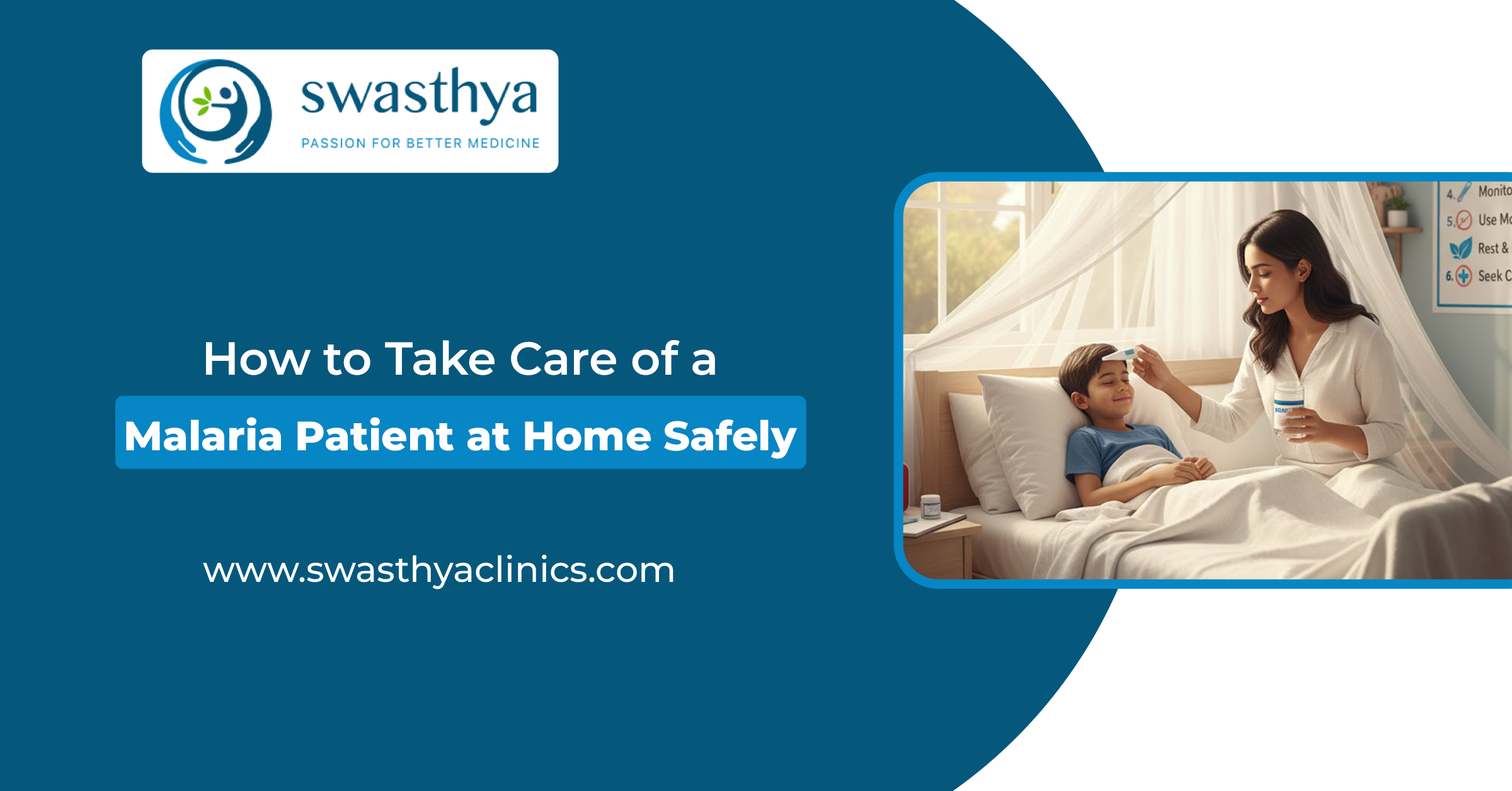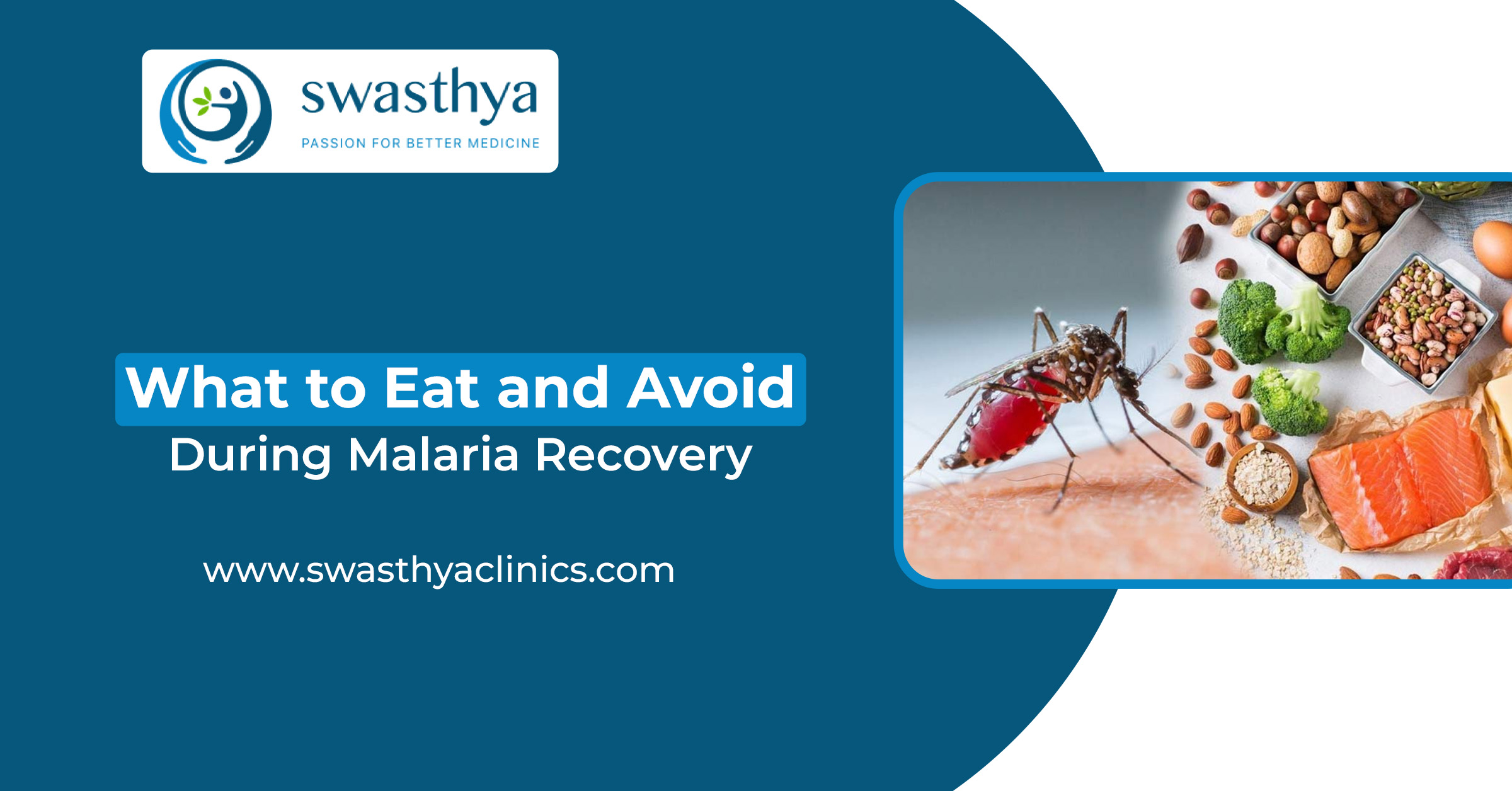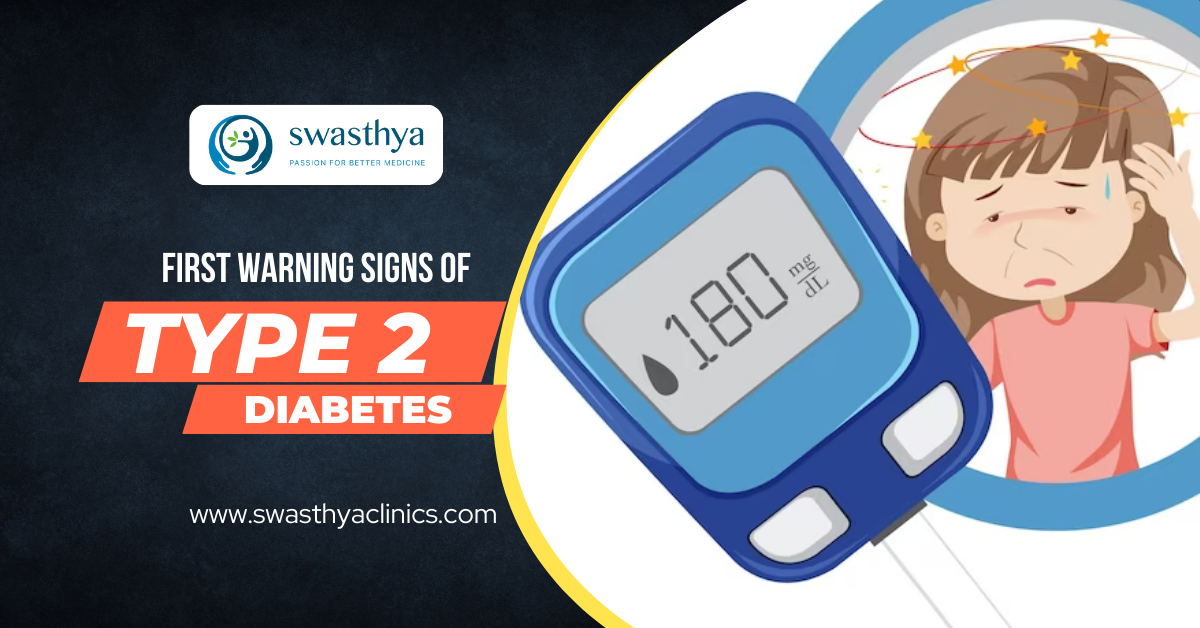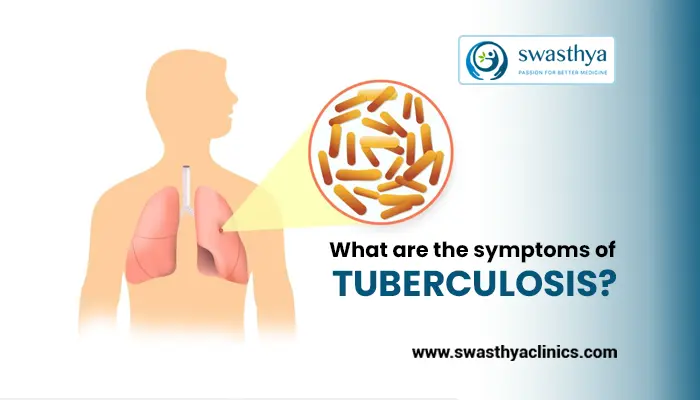Symptoms When You Should Visit General Physician
There are so many symptoms that call the need to reach the physician. Some symptoms are mild whereas some are severe.
Diabetes
It is a chronic medical condition characterized by high blood sugar levels due to the body's inability to produce or effectively use insulin, leading to various health complications.
Covid 19
It is a highly contagious respiratory illness caused by the SARS-CoV-2 virus, leading to widespread global health concerns, significant morbidity, and mortality.
Viral Infection/Fever
Fever is an elevated body temperature above the normal range, often caused by an immune response to an infection or illness.
Chikungunya
Chikungunya is a viral disease transmitted by mosquitoes, causing fever, joint pain, and rash in humans.
Typhoid
Typhoid is a bacterial infection caused by Salmonella typhi, characterized by high fever and gastrointestinal symptoms.
High/Low BP
High BP is when the force of blood against the artery walls is consistently too high, while low BP is when the force of blood against the artery walls is consistently too low.
Fever/Cold/Cough
Cold/cough refers to a common respiratory illness characterized by symptoms such as a runny or stuffy nose, sneezing, coughing, and sore throat.
Asthma & Allergy
Asthma is a chronic respiratory condition characterized by inflammation leading to breathing difficulties, while allergies are hypersensitive reactions to substances that are typically harmless to most people.
migrane/Headache
It is a neurological condition characterized by intense throbbing or pulsating pain in the head, often accompanied by other symptoms like nausea, sensitivity to light, and sound.
Dengue/Malariya
Dengue is a mosquito-borne viral infection that causes flu & Malaria is a parasitic disease transmitted through the bite of infected mosquitoes, causing recurring fever.
Thyroid
It is a bacterial infection caused by Salmonella Typhi that results in high fever, and gastrointestinal symptoms, and can be potentially life-threatening if left untreated.
anemia
It is a medical condition characterized by a deficiency of red blood cells or hemoglobin, resulting in a reduced capacity to transport oxygen throughout the body.

Dr. Rahul Mathur
General Physician with Special Interest in Geriatrics
CK Birla Hospital RBH, Jaipur
Dr. Rahul Mathur is a highly skilled and experienced General Physician in Jaipur and MD (Gold Medalist). He has been providing top-notch medical care to patients of all ages for the last 12+ years. He is highly experienced in the diagnosis and treatment of common medical issues such as fever, cold and flu, diabetes, hypertension, asthma, allergies, and other illnesses.
Dr. Rahul Mathur: Best General Physician provides the best treatment for:
- Asthma/Allergy
- Joint Pain
- Diabetes
- Fever
- Cold/Cough
- Covid Diseases
- TB, BP, Hypertension,
- Anemia Disease

Dr. Raman Mathur
Emergency Physician in Jaipur
Eternal Multispeciality Hospital (EHCC)
Dr. Raman Mathur is an Emergency Physician in Jaipur. He has over 7+ years of experience in Emergency Medicine, Trauma, and Cardiovascular Medicine. He has expertise in acute medical care including emergency resuscitation, stabilization, and critical care management of critically ill patients in emergency rooms and in ICUs/HDUs.
Dr. Raman Mathur: Best Emergency Physician in Jaipur provides the best treatment for
- Emergency Accidents
- Severe Injuries
- Illness
- Emergency & Critical Care
- Severe Fever
Our Services
We at Swasthya Clinic offers you the best treatments including

Diabetes
Take charge of your health! Get top-quality diabetes treatment from Dr. Rahul Mathur at Swasthya Clinic and reclaim your life today.

Malaria
Act now to get effective malaria treatment from Dr. Rahul Mathur at Swasthya Clinic and reclaim your health!

High BP
Take control of your high blood pressure today! Visit Dr. Rahul Mathur at Swasthya Clinic for effective treatment and reclaim your health.

Asthma/Allergy
Take control of your asthma and allergies today! Visit Dr. Rahul Mathur at Swasthya Clinic for expert treatment and breathe easier tomorrow.

Thyroid Disorders
Take control of your thyroid health today! Schedule an appointment with Dr. Rahul Mathur at Swasthya Clinic and experience personalized, effective treatment for thyroid disorders.

Joint Pain
Relieve joint pain and regain your mobility today! Visit Dr. Rahul Mathur at Swasthya Clinic for effective joint pain treatment.

Jaundice
Take the first step towards a healthier tomorrow! Trust Dr. Rahul Mathur at Swasthya Clinic for effective jaundice treatment and regain your vitality today.

Tuberculosis
Take charge of your health today! Visit Swasthya Clinic for expert tuberculosis treatment by Dr. Rahul Mathur. Together, we can conquer TB and restore your well-being.

Diabetes
Take charge of your health! Get top-quality diabetes treatment from Dr. Rahul Mathur at Swasthya Clinic and reclaim your life today.

Malaria
Act now to get effective malaria treatment from Dr. Rahul Mathur at Swasthya Clinic and reclaim your health!

High BP
Take control of your high blood pressure today! Visit Dr. Rahul Mathur at Swasthya Clinic for effective treatment and reclaim your health.

Asthma/Allergy
Take control of your asthma and allergies today! Visit Dr. Rahul Mathur at Swasthya Clinic for expert treatment and breathe easier tomorrow.

Thyroid Disorders
Take control of your thyroid health today! Schedule an appointment with Dr. Rahul Mathur at Swasthya Clinic and experience personalized, effective treatment for thyroid disorders.

Joint Pain
Relieve joint pain and regain your mobility today! Visit Dr. Rahul Mathur at Swasthya Clinic for effective joint pain treatment.

Jaundice
Take the first step towards a healthier tomorrow! Trust Dr. Rahul Mathur at Swasthya Clinic for effective jaundice treatment and regain your vitality today.

Tuberculosis
Take charge of your health today! Visit Swasthya Clinic for expert tuberculosis treatment by Dr. Rahul Mathur. Together, we can conquer TB and restore your well-being.
Why Choose Swasthya Clinic?
Everyone wants to get treated by the best and that’s why people are happy choosing Swasthya Clinic.

Experienced Physician
Dr. Rahul Mathur and Dr. Raman Mathur are the experienced physician here providing the best possible treatment.

Maximum Positive Results
Everyone wants to get the right treatment contributing ton positive results and thankfully here you will get the right treatment that will help you to get fine soon.

Expert in Several Treatments
Here you will get the best consultation at affordable prices. You will not regret coming here for sure. You can also ask the doctors if there is any doubt and they will answer it as needed!

Best Consultation
Doctors here possess a deep knowledge of the different treatment options available, and are capable of providing the best care and treatment for a range of ailments.

+
happy patients

+
Year of Experience

+
Awards
Patient Testimonial
Ramesh Mathur
Dr. Rahul & Dr. Raman did a great job with my first-ever health exam. They explained everything to me in a very clear manner. They are also very kind and friendly and used to listen problem of patients very pationously. He relates well to people and takes time to listen and takes appropriate action on the symptoms.
Niloy Adhikary
My Mother was admitted under emergency health condition at CK Birla Hospital Jaipur and was treated by Dr Rahul Mathur. After discharge fhospitalital, she has been following medication given by Dr Rahul at his Clinic of Shipra Path - Mansarovar Jaipur. Thanks to the regular medicines & diet as prescribed by Dr Rahul Mathur, my Mother's health is recovering faster.
Amit Kulshrestha
I am so happy with dr Rahul mathur treatment.Good & long experience in Cardio & diabetes So friendly & helpful dr.
Contact Us
Contact Our Specialist Doctor At
Any Time For Any Of Your Ailments
Consulting Hours
Swasthya Clinic
C K Birla Hospital - RBH
Integrity Healthcare
MAKE AN APPOINTMENT
Recent Health Articles
Read all the blogs provided by our expert doctors on various diseases and their possible treatments, so you easily understand your symptoms and their treatments.

Do You Need Antibiotics For Every Infection?
Do you need antibiotics for every infection? This blog explains when antibiotics are truly necessary and when your body can heal without them.

Can Asthma Be Genetically Inherited?
Dr. Rahul Mathur explains “Can Asthma Be Genetically Inherited” its causes, genetic factors, triggers, and tips for prevention and early management.

How To Control Blood Sugar Naturally
Learn simple and effective ways to Control Blood Sugar Naturally through healthy eating, regular activity, good sleep, hydration, and stress management. Dr. Rahul Mathur shares easy lifestyle habits to help you maintain stable sugar levels and improve overall health.

How To Take Care Of A Malaria Patient At Home Safely
Learn effective malaria patient care at home with expert tips on diet, hydration, rest, hygiene, and emotional support. Ensure safe recovery and prevent complications with simple home care steps.

What To Eat And Avoid During Malaria Recovery
Discover the best foods to eat and avoid during malaria recovery. Boost immunity, regain strength, and heal faster with expert tips from Swasthya Clinics Jaipur.

Don’t Ignore These 7 Body Signals—They Could Mean Dengue
Persistent fever, eye pain, rashes, or fatigue? These may be dengue symptoms. Detect early & consult the Best General Physician in Jaipur at Swasthya Clinic.

How To Prevent Dengue And Malaria During The Monsoon Season
Stay safe this monsoon! Discover easy, effective tips to prevent dengue and malaria. Beat mosquito-borne diseases with smart habits and timely action.

Struggling To Breathe? Know The Difference Between Asthma And Allergies
Struggling to breathe? Learn the key differences between asthma and allergies, their symptoms, causes & treatment. Get expert care at Swasthya Clinic, Jaipur.

Understanding The Silent Signs Of Thyroid Issues In Women
Learn key thyroid symptoms in women & how they affect health. Consult Swasthya Clinic for expert thyroid treatment in Jaipur. Early care ensures better health.

Causes Of Anaemia, Symptoms And Treatment
Learn the causes, symptoms, and treatments of anaemia. Get expert advice from a top general physician in Jaipur to manage and recover from anaemia effectively.

Severe Allergic Asthma Treatment
Discover effective treatments for severe allergic asthma, including medications and lifestyle tips to manage triggers and improve breathing.

Best Ways To Lower High Blood Pressure
Struggling with high blood pressure? Discover effective hypertension treatments, natural remedies, and lifestyle changes to maintain a healthy heart.

7 Common Types Of Headaches Explained
Explore the 7 most common types of headaches, their causes, symptoms, and effective treatments. Get expert care from Dr. Rahul Mathur, a top physician in Jaipur.

5 Common Health Problems Treated By Physicians
Struggling with health issues? Discover how expert physicians treat respiratory infections, diabetes, hypertension, digestive disorders, and more. Visit Swasthya Clinics, led by Dr. Rahul Mathur, for personalized care and early diagnosis. Book your appointment now for a healthier tomorrow!

जानिए सर्दियों में अस्थमा के 10 कारण
सर्दियों में अस्थमा के 10 प्रमुख कारण जो आपकी सांसों पर प्रभाव डाल सकते हैं। जानिए कैसे ठंडा मौसम, वायु प्रदूषण और अन्य तत्व अस्थमा के लक्षणों को बढ़ा सकते हैं और इससे बचने के उपाय।

मोटापा घटाने के 10 फायदे, जो आपकी जिंदगी बदल दें
मोटापा घटाने के 10 प्रमुख फायदे जो न सिर्फ आपके स्वास्थ्य को बेहतर बनाएंगे, बल्कि आपकी जिंदगी में भी सकारात्मक बदलाव लाएंगे। जानें कैसे वजन कम करना आपके शारीरिक और मानसिक स्वास्थ्य को लाभ पहुंचा सकता है।

Top 10 Reasons To Choose A General Physician In Jaipur
Top 10 reasons to choose a best general physician in Jaipur for personalized care, comprehensive health management, and expert advice.

How To Choose The Best Doctor For Asthma Treatment In Jaipur?
In search of the top asthma specialist in Jaipur? Learn key advice for choosing an expert, such as credentials, background, client feedback, and available therapies. Make sure you get customized care for successful asthma control.

How To Control Low Blood Pressures?
If you stay in Jaipur, the very first thing you should do is look for a general physician in Jaipur. Furthermore, you can get consultations to overcome hypertension treatment in Jaipur, where both low and high blood pressure problems are to be solved.

Obesity: Causes, Symptoms, And Treatment !
Obesity is a complex condition that requires a multi-faceted approach for effective management. With the right combination of dietary changes, physical activity, and medical interventions, it is possible to reduce the risks associated with obesity and lead a healthier life. If you are struggling with obesity and are looking for "Obesity Treatment in Jaipur," consulting a qualified "General Physician in Jaipur" can provide you with the guidance needed to make lasting changes.

Understand Latex Allergy: How It Leads To Skin Problems And Treatment Options.
Latex allergy is one of the most typical issues experienced by many people. Its symptoms may range from mildly irritating to severe skin-related reactions. This article will help you understand latex allergy, its impact on your skin, and how to treat it best. If you are searching for allergy treatment in Jaipur, this guide might help you find the right solutions.

Superfoods For Type-2 Diabetes
Managing type-2 diabetes effectively involves a combination of lifestyle changes, including a balanced diet rich in nutrient-dense foods. Superfoods are particularly beneficial due to their high concentrations of essential nutrients, antioxidants, and fiber, which can help stabilize blood sugar levels and improve overall health. In this blog, we'll explore some of the top superfoods for type-2 diabetes and how incorporating them into your diet can complement diabetes treatment in Jaipur.

Tips To Manage And Prevent Rainy Seasonal Allergies
Seasonal allergy occurs when substances present in the environment overreact with the immune system. They can happen at any time of the year. Seasonal allergy is not restricted to age. People of any age can be infected by it. The allergens that cause allergies include pollen grains, trees, grass, weeds, insects, etc.

Common Myths And Facts About Thyroid Treatment
Thyroid disorders, which impact the thyroid gland's ability to produce hormones that regulate metabolism, growth, and energy levels, are a significant health concern affecting millions worldwide. Despite their prevalence, misconceptions about thyroid treatment abound, leading to confusion and sometimes suboptimal care.

Easy Tips To Control Diabetes!
incorporating these easy-to-follow tips into your daily routine, you can navigate life with diabetes with greater confidence and achieve better overall health outcomes.

फीवर में डायट: क्या खाना चाहिए और क्या नहीं?
अक्सर गलत डायट बीमारी को बढ़ा देती है, इसलिए फीवर को हल्के में न लें और फीवर में डायट के बारे में सही जानकारी लें। Fever diet in Hindi

Typhoid Fever: टायफॉइड फीवर क्या है?
Typhoid Fever: टाइफाइड बुखार एक प्रकार का जीवाणु संक्रमण है जो दूषित पानी और दूषित भोजन के कारण होता है। आपको बता दें कि यह तेज बुखार के साथ-साथ पेट दर्द, सिरदर्द आदि का भी कारण बनता है।

6 Signs That You Need To Have Your Thyroid Checked
6 Signs That You Need to Have Your Thyroid Checked: The thyroid gland, though small in size, plays a monumental role in regulating various bodily functions.

Symptoms Of High Blood Pressure In Winter
As the cold weather sets in, it's crucial to be vigilant about your health, especially when it comes to high blood pressure.

What Your Persistent Winter Cough Means?
This article delves into the reasons behind a lingering winter cough, exploring both common and more serious health issues associated with incessant coughing.

Symptoms Of Lung Infection In Winter
Symptoms of Lung Infection in Winter: Winter brings a magical ambiance but also ushers in a range of health challenges, including the heightened risk of lung infections.

Thyroid Disorder Symptoms
Thyroid Disorder Symptoms: The human body is a complex and intricately woven tapestry of organs and systems, each playing a crucial role in maintaining overall health.

Why Asthma Is Worse In Winter?
For individuals with asthma, the winter season often poses the greatest challenges. The combination of cold, dry air and sudden weather fluctuations can provoke irritation in the airways, prompting an increased production of mucus.

Pneumonia Causes In Winter
In this blog post, we will delve into the various causes of pneumonia during the winter months, shedding light on the factors that contribute to its prevalence.

What Are Common Asthma Symptoms?
Asthma is a chronic respiratory condition that affects millions of people worldwide. It is characterized by inflammation and narrowing of the airways, leading to various symptoms that can significantly impact an individual's quality of life.

Viral Fever Symptoms: A Comprehensive Guide
Viral fever is a common ailment that affects people worldwide. It often strikes without warning, leaving individuals feeling unwell and uncomfortable. In this informative guide, we'll delve deep into the world of viral fever symptoms.

What Are The First Warning Signs Of Type 2 Diabetes?
Type 2 diabetes is a metabolic disorder that affects millions of people worldwide, and its prevalence continues to rise. It often develops gradually, making it essential to recognize its early warning signs.

Symptoms That You Should Visit General Physician
Maintaining good health is a paramount aspect of our lives. For it seeking medical attention when in need is a fundamental step toward overall well-being.

Arthritis Symptoms: Understanding The Signs And Seeking Relief
In this article, we delve into the diverse array of arthritis symptoms, how they affect individuals, and explore strategies to manage and find relief from these symptoms effectively.

Why Dengue Or Malaria Is More Common During Monsoon And How It Can Be Avoided?
The monsoon season brings relief from the scorching heat of summer, but it also brings with it an increased risk of mosquito-borne diseases like dengue and malaria.

Symptoms Of Severe Dengue: Understanding The Risks And Signs
Dengue fever is a mosquito-borne viral infection that affects millions of people worldwide. While most cases of dengue are mild and resolve on their own, there is a subset of individuals who develop severe dengue.

What Is The Problem With Increasing Thyroid?
Our bodies rely on a delicate balance of hormones to maintain optimal health. One such hormone, the thyroid hormone, plays an important role in regulating various bodily functions.

Dengue In Children: Recognizing The Signs And Ensuring Timely Treatment!
Dengue is a common problem among people. Whenever the weather changes and mosquitos are at their peak in their surroundings, this condition takes place. Every year so many people, including adults and children, suffer from it. But, one cannot forget they one needs to be attentive to the symptoms. If the case is with children, it is important to be attentive as well.

High Blood Pressure Complications
High blood pressure, also known as hypertension, affects millions of people worldwide. Often referred to as the "silent killer," this condition can lead to severe health complications if left unchecked.

Early Signs Of Diabetes
Diabetes is a chronic condition that affects millions of people worldwide. It occurs when the body struggles to regulate blood sugar levels, leading to potentially serious health complications.

What Are The Dengue Symptoms In Children?
Dengue fever is a viral infection that spreads through the bite of the Aedes mosquito. It can affect people of all ages, but children are particularly vulnerable to the disease.

Jaundice Symptoms: Everything You Need To Know About Jaundice
Jaundice is a common condition that affects millions of people worldwide. It occurs when the liver is unable to filter out excess bilirubin, a yellow pigment found in the blood.

What Food Should Avoid In Dengue?
Dengue fever is a mosquito-borne viral infection that is spread from person to person. It can cause a range of symptoms, from mild fever and headache to severe abdominal pain and shock.

Dengue Fever Symptoms And Causes
Dengue fever is a viral disease that has become a significant public health concern in many parts of the world. It is transmitted by mosquitoes and can cause severe symptoms, including high fever, muscle and joint pain, and rash.

Major Symptoms Of Malaria
Malaria is a serious infectious disease that is caused by a parasite, which is spread to people through the bite of infected mosquitoes.

Chikungunya: चिकनगुनिया क्या है जाने इसके कारण और लक्षण?
चिकनगुनिया एक वायरल बुखार है जो मच्छरों के जरिए फैलता है. तेज बुखार, सिरदर्द और जोड़ों में दर्द जैसे इसके लक्षण, कारण और इलाज के साथ ही बचाव के तरीके जानने के लिए इस खबर को पढ़ें.

जोड़ों का दर्द (आर्थ्राल्जिया) क्या है?
आमतौर पर लोग अक्सर जोड़ों के दर्द (आर्थ्राल्जिया) को अर्थराइटिस (गठिया) की बीमारी समझ लेते हैं। हालांकि, गठिया और जोड़ों का दर्द (आर्थ्राल्जिया) दोनों अलग-अलग स्वास्थ्य समस्याएं हो सकती हैं।

Diabetes Kya Hai - डायबिटीज क्या है और क्यों होता है?
डायबिटीज एक ऐसी बीमारी है जिसमें आपके शरीर का ब्लड शुगर या ब्लड ग्लूकोज सामान्य से अधिक हो जाता है। आज के समय में डायबिटीज की बीमारी तेजी से बढ़ती जा रही है और बूढ़े से लेकर बच्चे भी इसकी चपेट में आ रहे हैं

What Are The Causes Of Allergic Asthma? Know The Symptoms
Allergic asthma is a chronic respiratory condition that is triggered by allergens in the environment. It affects millions of people worldwide, and it can have a significant impact on their quality of life.

When Should Visit General Physician?
A general physician is a doctor who specializes in diagnosing and treating a wide range of health issues.

What Are The 9 Main Signs Of Diabetes?
Diabetes is a serious health condition impacting millions of people around the world. One of the most important factors in living a happy and healthy life with diabetes is managing and recognizing the signs of the disease.

What Are The Symptoms Of Arthritis?
Arthritis is a condition that causes pain and inflammation in the joints. It can affect people of all ages but is most common in adults over the age of 65.

Diabetes: डायबिटीज के कारण क्या हैं ?
मधुमेह एक आजीवन रोग है। यह एक चयापचय संबंधी विकार है जिसमें रोगी के रक्त में ग्लूकोज का स्तर बहुत अधिक होता है। जब, किसी व्यक्ति का शरीर पर्याप्त इंसुलिन का उत्पादन नहीं करता है

10 Leading Causes Of Weight Gain And Obesity!
Weight gain and obesity are major public health problems across the globe. More than one-third of adults across the globe are obese, and another one-third are overweight. Obesity rates are highest among adults aged 60 and over, followed by adults aged 40 to 59.

How Do TB Symptoms Start?
Tuberculosis is a serious disease that can cause coughing, shortness of breath, and fever. It is spread through contact with the air or saliva of an infected person. It can be treated with antibiotics.

How Does Diabetes Affect Your Body?
Diabetes is a condition that is characterized by the need for insulin to be injected into the body to keep blood sugar levels under control. The disease can lead to a variety of complications, including type 2 diabetes, which is the most severe form of diabetes.

Diet For Asthma Patients What To Eat And Avoid?
Diet is an important part of being fit. It can help you lose weight or maintain your weight, and it can also help you get in shape. A healthy diet includes plenty of fruit, vegetables, whole grains, and low-fat dairy products.

How To Control Asthma In Winter?
Asthma is a chronic respiratory illness caused by the overproduction of bronchial secretions, which can be controlled with steroids. It affects about one in five people across the globe and is the leading preventable cause of death in children under the age of 20.

What Are The Main Prevention Of Diabetes?
Diabetes is a chronic disease that caused by beta-cell defects in the pancreas. It affects more than 1 million people across the world each year. The average person is diagnosed with diabetes after age 50. When these levels get too high, the body can't use the insulin it produces to control blood sugar.

What Are The Symptoms Of Thyroid Problems In Females?
Thyroid problems are common in women, and can be a source of significant distress. The thyroid is a gland in the neck that helps to produce energy. It is important to have a good thyroid because it helps to regulate how quickly your metabolism goes, how much fat you burn, and how well your immune system works.

What Is The Most Common Cause Of Thyroid Disorders?
Most common cause of thyroid disorders: Thyroid gland is a small, butterfly-shaped organ in the neck that helps to control your metabolism and give you the energy you need to do your day-to-day activities.

What Is The Fastest Way To Cure Viral Fever?
Viral fever is an illness caused by the common cold or other respiratory viruses. It is most commonly spread through contact with respiratory secretions, such as saliva or mucus. It can also be spread through contact with infected surfaces or items.

What Are The Causes Of Tuberculosis?
Tuberculosis is a respiratory infection caused by Mycobacterium tuberculosis. It is a serious and often fatal disease. It can spread through contact with respiratory secretions, such as saliva, mucus, or blood, from an infected person.

What Are The Symptoms Of Tuberculosis?
Tuberculosis, a contagious and often fatal respiratory illness, is the most common lung infection in people of working age. It can be caused by the bacteria mycobacterium tuberculosis, a type of bacteria that lives in the lungs.

What Are The Causes Of Viral Fever In Babies?
Viral fever is a common condition in infants, and it can be caused by a variety of viruses. The most common virus that causes viral fever is the common cold, but it can also be caused by other viruses such as the SARS virus.

Who Is At Risk For Asthma?
Asthma is a common condition that affects people of all ages. It is caused by an allergic response to pollen, dust mites, or other allergens. The infiltrate or accumulation of histamine in the airways can lead to chest pain and difficulty breathing.

What Are The Causes Of Asthma?
Asthma is a chronic disease that affects the airways. It is a serious health condition that can be life-threatening if not treated correctly. It is caused by the body's reaction to allergies and environmental factors.

Jaundice: क्या होता है पीलिया? जानें इसके कारण लक्षण और उपाय
जब रक्त में बिलीरुबिन का स्तर बढ़ जाता है, तो त्वचा, नाखून और आंखों का सफेद भाग पीला हो जाता है, जिसे पीलिया या पीलिया कहा जाता है। बिलीरुबिन एक पीले रंग का पदार्थ है, यह रक्त कोशिकाओं में पाया जाता है।

What Is Allergy? It's Types And Diagnosis!
Allergies are a hypersensitivity of the immune system to a substance that is usually harmless. These take place due to an overreaction of the immune system to substances that are usually not harmful. The substances that cause allergies are "allergens".

वायरल फीवर क्या है? जानें इसके कारण, लक्षण और उपाय
वायरल फीवर का मतलब है वायरल इंफेक्शन। यह बिल्कुल बुखार जैसा है, हालांकि इसके शुरूआती दौर में बहुत ज्यादा शारीरिक रूप से थकान महसूस होना, मांसपेशियों में तेज दर्द या शरीर में दर्द की समस्या हो सकती है। वायरल बुखार छोटे बच्चों और बुजुर्गों को जल्दी प्रभावित कर सकता है, क्योंकि उनकी प्रतिरक्षा प्रणाली बहुत कमजोर होती है।

What Are The Symptoms Of Anaemia?
We are all aware of the fact that anaemia is among the common conditions in which a body lacks healthy red blood cells responsible for carrying an adequate amount of oxygen to the body tissues.

What Are The Warning Signs Of A Thyroid Problem?
There are different types of thyroid disease, including hyperthyroidism, hypothyroidism, Hashimoto thyroiditis, and thyroiditis. It is important for individuals to pay attention to the changes happening in their bodies so that they can reach out to the doctor.

मोटापा (Obesity) – क्या आप बढ़ते वज़न से परेशान हैं?
आजकल की भागदौड़ भरी जिंदगी में बहुत से लोग अपने शरीर की देखभाल नहीं कर पाते हैं। उनके लिए स्वस्थ और सक्रिय जीवन जीना इतना आसान नहीं है। इस वजह से, कुछ अध्ययनों के अनुसार, 2018 में 56% भारतीय नागरिक मोटापे से पीड़ित थे।

What Are The First Warning Signs Of Asthma?
As we all know, in the present generation, the chances of asthma are growing due to lifestyle and the pollution in these surroundings. People who are living in such surroundings where they are exposed to chemicals and other factors that can irritate the respiratory system usually experience it.

What Is The Main Cause Of Diabetes?
As we all know, in the past, most old people suffered from such conditions. But now the scenario has changed and even in children who are in their teens, such cases have been reported. However, there are still so many people who have no idea about the main cause of diabetes

सिरदर्द के प्रकार, कारण, इलाज, दवा, उपचार, लक्षण
सिरदर्द मुख्य रूप से आपके सिर के क्षेत्र में लगातार दर्द के अलावा और कुछ नहीं है। यह हल्के के रूप में शुरू होता है और फिर दर्द बढ़ने पर आगे बढ़ता है। कई बार ऐसा होता है जब आप अपने सिरदर्द को दवाओं से ठीक नहीं कर सकते।
FAQ’S
Read all the FAQ's that helped you to know about the symptoms and their treatments and get all your answer related to this disease.


























